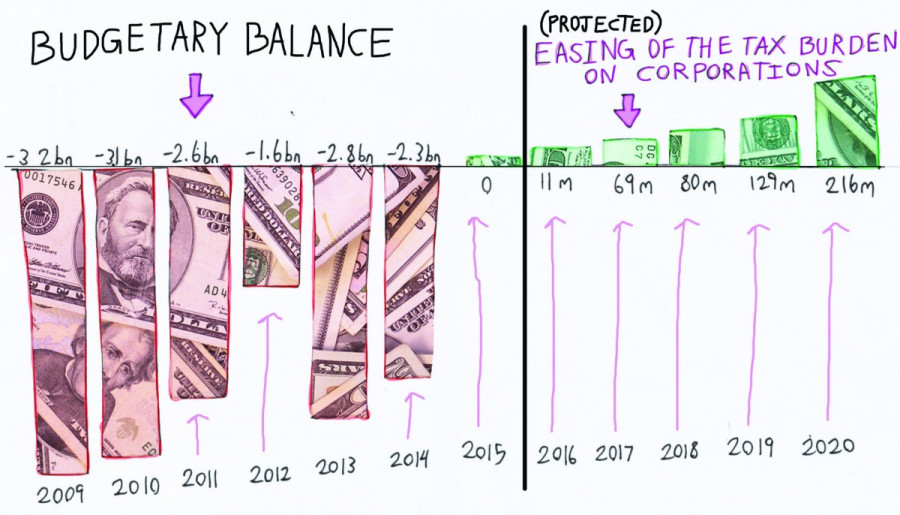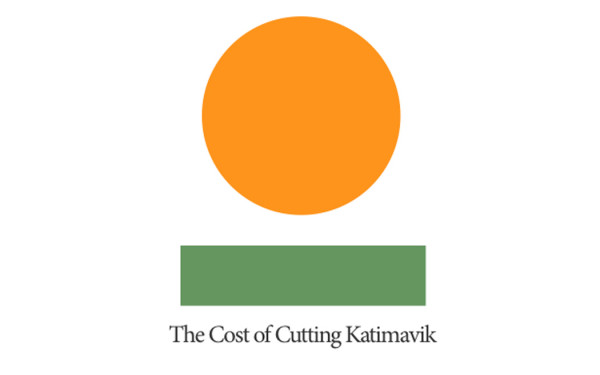A Budget for Bankers and Businessman
The Unfortunate Tale of the Unbalanced Balanced Budget
Last week, Quebec announced its first balanced budget in six years as the Liberal Party seeks to reduce the province’s fiscal deficit, which currently stands at $2.35bn.
When you look at the $100bn budget, it is clear that pensioners and corporations seem to be relatively unaffected by the austere neoliberal policies that youths are disproportionately affected by. Last Thursday’s budget saw former Laurentian Bank chief economist and current Finance Minister Carlos Leitão announce another $729 million in cuts, largely in the health and education sector—including a further $70 million to universities after $200 million of cuts throughout the past year. The economic plan seeks to “ease the tax burden” and “ensure public finances remain sound,” thus engendering the conditions for economic growth.
“This is a turning point, not an end point,” Leitão announced as he revealed his party’s budget, as quoted in the Montreal Gazette. “And we’ve done it without raising taxes.” Keynesian economic solutions are surely primed for a renaissance if this neoliberal economic strategy fails to deliver growth. Much is made of the tax rates in Quebec being the highest in Canada, but the code is not at all progressive. When one considers the revolving door between corporate banks and government through North America and Europe, the failure to reform an already conservative tax code is unsurprising.
As former Citigroup chief operating officer Jack Lew took over the U.S. Secretary of the Treasury job from Timothy Geithner (who is now president of Wall Street private equity firm Warburg Pincus); and as ex-Goldman Sachs executive director Mark Carney, who was governor of the Bank of Canada, was appointed governor of the Bank of England by Conservative Prime Minister David Cameron, it is clear that our treasuries are in the hands of venture capitalists vowing to reduce the state.
Ex-Laurentian Bank chief economist Leitão is a man in this mould. It seems appropriate that his family fled Portugal after the fall of the Estado Novo as Marxists looked primed to take over; the influence of the private sector is such that technocrats are being brought in to administer austerity when politicians fail.
There are four personal income tax brackets in Quebec: first $41,935; up to $83,865; up to $102,040; and over $102,040. The Association pour une solidarité syndicale étudiante (ASSÉ) has funded and disseminated a series of posters, supported by the Concordia Student Union, which, albeit vaguely, have been advocating proposals for the adoption of ten tax brackets which would amount to a more progressive tax code—one where, for instance, those earning in excess of one million dollars would be expected to pay more than those earning $100,000.
This would certainly be a step in the right direction for Quebec, as the better-off would shoulder more of the fiscal burden whose accumulation that the Parti Quebecois and the Liberals have themselves overseen through recent memory. Why does the adoption of a Scandinavian- or Belgian-style tax code, rising from 0 per cent to 64 per cent, sound like sacrilege to so many?
Economists such as Thomas Piketty and Paul Krugman have recently argued that higher top tax rates would not stunt economic growth but that the revenue could “redress inequality.” This is in direct contradiction to the Laffer curve theory, which claims that tax rates rising beyond a certain point will be detrimental to revenue collection—a notion central to Reagonomic, small state theory. Certainly in Belgium this is the case, where 47.2 per cent of the national wealth is held by the top 10 per cent; in contrast to the U.S. where this figure is 74.6 per cent.
As the Pope recently said, “[supply side economic theories rely on] a crude and naïve trust in the goodness of those wielding economic power and in the sacralized workings of the prevailing economic system.” When one considers the distribution of wealth in the U.S., it’s clear that laissez-faire economic theories are actually facilitating a widening of inequality.
As the Pope recently said, “[supply side economic theories rely on] a crude and naïve trust in the goodness of those wielding economic power and in the sacralized workings of the prevailing economic system.” When one considers the distribution of wealth in the U.S., it’s clear that laissez-faire economic theories are actually facilitating a widening of inequality.
Corporate taxes will be cut from 11.9 per cent to 11.5 per cent and the salaries of public sector workers will be frozen for two years, rising 1 per cent annually thereafter, while little has been made of job creation in this ideologically-driven budget. The Liberal government has hitherto attacked the small fry during their tenure. It is indeed true that Quebec’s corporate base is relatively small, but a 0.4 per cent increase, as opposed to a reduction, would at the very least soften the blow to the public sector.
Quebec’s 11.9 per cent corporate tax rate is among the lowest in Canada anyway – situated between Alberta’s 10 per cent and Newfoundland and P.E.I.’s 16 per cent. Essentially, the government should not be pampering the corporations who contribute 16 per cent of the public purse while individuals fund 84 per cent of it.
When you consider that Bell made a profit of $1bn in the third quarter of last year, it seems quite bizarre that the taxes that they and other corporations pay, such as Desjardins and Molson, are being cut as their profits increase. This is in correlation with a Western economy edging out of the mist of the 2008 crash. This is a budget which will make upward social mobility less likely, squeezing the middle class and making living ever more difficult for the working and lower middle classes. Solidarity Concordia, ASSÉ and other anti-austerity groups claim that a rise to a 15 per cent rate would increase revenues by more than $1bn.
This is surely a viable economic option, but perhaps they prefer squeezing one group until the pips squeal. Tax relief will not come until 2017, to coincide with the impending election campaign where the Liberals will hope the electorate remembers them for tax cuts and not welfare cuts. The Liberal government seems to be pushing through their plan as quickly as possible to buy time to win back the voters before the 2018 election. Young people don’t vote much anyway. The 62 per cent turnout in 2012 was an anomaly, and the 2014 election saw this figure edge back towards the 37.7 per cent of 2008—let’s go and vote as much as pensioners do to make a change.
We are a long way from the humane capitalism that John Maynard Keynes championed. Milton Friedman still rules the roost, though for how much longer we do not know. It’s time to start thinking about Keynes again, away from the oft-quoted Friedmanist notion: “Is there some society you know that doesn’t run on greed?”




4_600_375_90_s_c1.jpg)

_600_375_90_s_c1.jpg)
_600_375_90_s_c1.JPG)